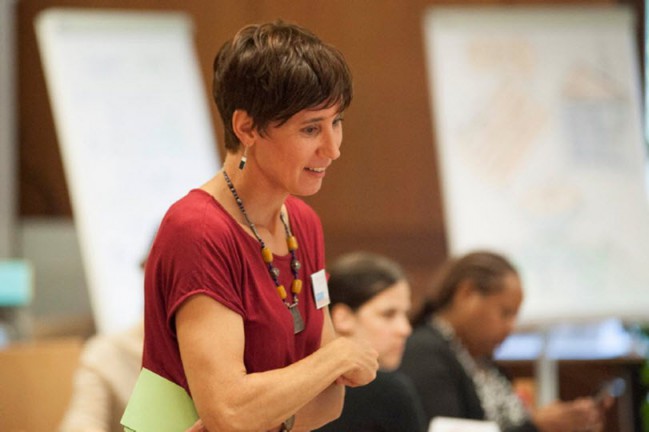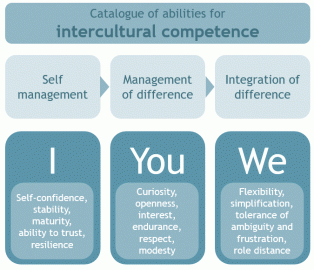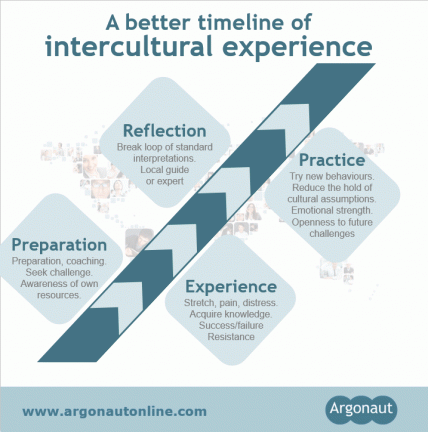Intercultural experience does not equal intercultural competence
Feb 26, 2016 · by Margret Steixner

A mind that is stretched by a new experience can never go back to its old dimensions
Let’s be honest. This stretch can feel painful. Intercultural experiences offer a unique platform for self-development. But experiencing other cultures does not automatically provoke positive learning.
Only by reflecting how this experience affects our own beliefs and attitudes can we gain new insights into our own limitations. Intercultural experience does not equal competence.
Reflection sounds easy, but we often need a professional perspective to get out of our standard loop of interpretations: a well-structured expatriate coaching programme, for example, can multiply the benefits of experience through pre-departure preparation and coaching during the assignment.
Change is hard: it requires more than seeing new lands
Experience almost certainly builds knowledge, but doesn’t necessary develop behaviour. Our behaviour is usually quite rigid and repetitive. It may change only if we recognise a failure. And even then, change can be slow or non-existent. When we take a conscious decision to change existing patterns of behaviour, we still often feel resistance.
Experience may give us ideas and information about cultural adaption. Often knowledge does not transfer directly into practice, especially when the change runs against our own cultural assumptions.
Good to know
Knowledge is an ingredient in intercultural competence, but gaining knowledge can also lead to wrong conclusions and other problems, if the “learning” happens in a negative context, or without good resources for reflection and emotional strength.
Knowledge does not transfer directly into practice, especially when the change runs against our own cultural assumptions.
It can be dangerous to assume that you know a lot about how people from a different culture operate. In the worst case, experience leads to over-confidence and complacency. Negative experiences can lead to all-too-easy stereotyping, superficial conclusions, frustration.
Three key components of intercultural competence

If knowledge alone does not bring success, what else do we need? Intercultural competence has many components, and experience is only one of those. The approach of Prof. Dr. Christoph Barmeyer distinguishes:
- knowledge
- behaviour
- emotion
as the main components of intercultural competence. According to Barmeyer, experience almost certainly adds to knowledge, but will not alone drive change in behaviour.
We need a distinct set of abilities to rely on. Most of those abilities are not in essence “intercultural”, but help us to apply the knowledge and translate it into behaviour. I divides them into three main categories called the I, You and We abilities. Coaching can help us achieve awareness of the resources we already have inside us. Starting with this awareness of our own resources, we learn how to use them to enable successful intercultural encounters.
How to take maximum benefit from experience
- put yourself in situations which challenge your own assumptions
- consider how you and others behaved in the situation
- find local/expert guides to discuss your interpretations and get to the bottom of it without ignoring your emotions
- brainstorm alternative reactions and experiment with new behaviour: stretch yourself consciously in a playful way
- leave some questions open to be answered by future experience
Looking for the easy route through cultural difference? To make it a transformative experience, to truly grow your global skills, you may have to accept that your work with other cultures will involve some distress. When experience tests you emotionally and nudges you to shift your behaviour, you’re probably accelerating along the intercultural learning curve.
Quotation: Oliver Wendell Holmes

